Expert Publicists Explain How to Get Your Film Seen on a Budget
Everything you wanted to know about independent film publicity (and how to get it).
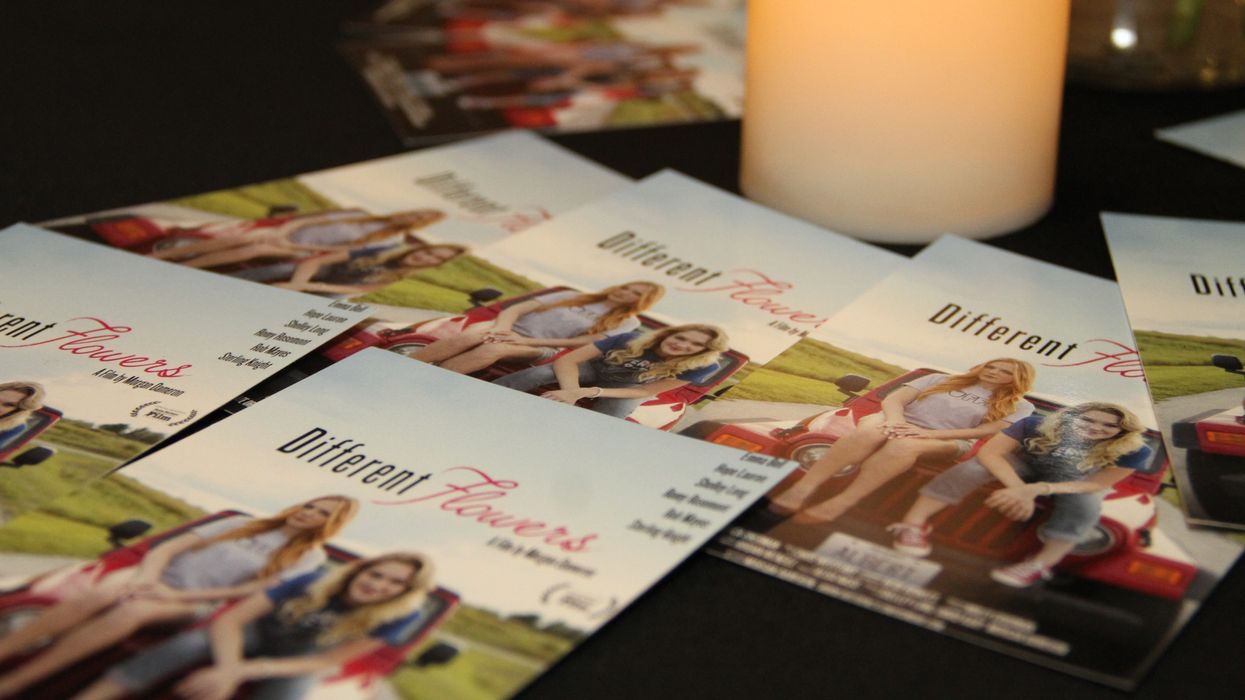
If you want people to see your movie, first they need to know it exists. You need attention. But how do you break through the noise to end up on an audience member’s radar? That’s where good publicity comes in.
Maybe you are a guest on someone’s favorite podcast, reviewed in Variety, or even The New York Times. Or, maybe it’s front page news in your hometown newspaper. When I was releasing my feature film, Different Flowers, I was so nervous about working with the press. I had a million questions. How do you get a good review? How do you know what to say in interviews? How do you even know which members of the press to contact?
Turns out there are experts with answers to all of these questions and more: publicists. Working with a skilled publicist can help you tell the story of your movie and get noticed. It takes years of experience, dedication, and learning from past mistakes to excel at getting exposure for a project, but lucky for you, we have compiled advice from the experts.
We assembled an expert panel of film publicists to walk us through the best ways to go about making a splash for your project. K2 Publicity Co-Presidents, Kara MacLean and Kevin McLean have handled it all: film release strategy, festival strategy, media relations, talent relations and event planning. We also spoke with Sarah Findlay, a film, talent and event publicist who's vast experience spans international and domestic markets.
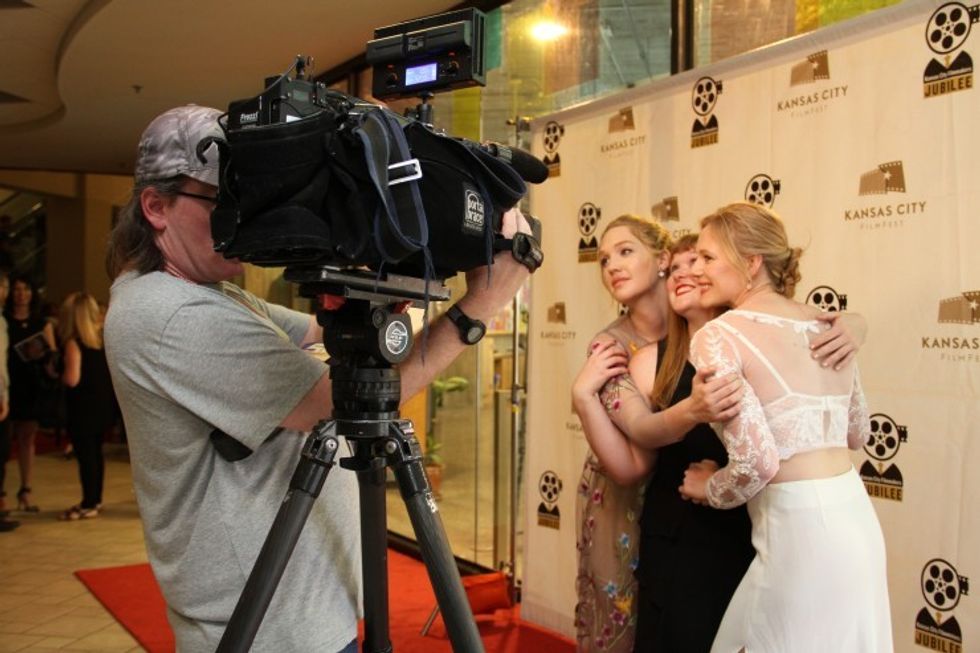
"A publicist is best utilized when the film is world premiering, at a major or specialty festival, as well as when the film is available for audiences to see it in theaters or digitally."
NFS: Many independent filmmakers feel completely lost when it comes to press. At what stage should filmmakers start to think about publicity when making a film?
K2: When it comes to publicity for films, it really depends on what filmmakers are looking for from a publicist, and what the purpose of that work is. Strategically, a project or casting release can be helpful if you're looking for interest from investors, festivals, or distributors, and/or if you're pre-selling a film or your sales agent is looking to create interest from buyers. In that case, utilizing a publicist can be helpful when going into production. There are also cases where it makes the most sense to hold the majority of press until the film is available for a select or wide audience to see it. These types of decisions and conversations are individual, but a publicist can also help you navigate that terrain.
In our personal experience, unless you have a film that you're looking to pre-sell ahead of festivals or before its world premiere, a publicist is best utilized when the film is world premiering, at a major or specialty festival, as well as when the film is available for audiences to see it in theaters or digitally.
Sarah Findlay: Ideally, you've thought about it before your film and have a unit publicist and photographer confirmed. If you can't afford a unit publicist at minimum have a unit photographer that can capture behind-the-scenes stills and photos of cast and crew. These images can be used for marketing and publicity when the film is released. Unit publicity and photography is all about preparation for your release. Depending on the size of your film and cast, you could be securing press during filming with a unit publicist as well.
If you’ve already wrapped with filming the ideal stage to engage a publicist is for festival or theatrical release.
"Another thing to consider is whether the publicist seems excited by the film, and ‘gets’ it."
NFS: When is working with an experienced publicist necessary? Are there smaller festivals or markets where filmmakers should pursue their own press coverage?
K2: Filmmakers always have the option of reaching out to press themselves. It's the relationships, passion, and experience that publicists bring that can elevate a film and help it stand out from the vast amount of competition out there these days. It really depends on the festival, what type of coverage the festival itself generally garners, and what the publicist or publicity company can do for the film specifically within that space. Another thing to consider is whether the publicist seems excited by the film, and ‘gets’ it. Being on the same page in terms of language and approach is really important.
Those types of conversations are always helpful to have between the filmmaker and publicity companies being considered.
SF: Publicity is time-consuming and often based on relationships with the press. So this is a question about time, budget, and leverage. If you're a filmmaker with a solid understanding of publicity, then you could handle your own publicity for smaller festivals and markets. But if it is entirely new for you, then it is best to hire an expert and focus your efforts on other areas to ensure the success of your film.
How I see it is this is your one chance to leverage your work. And let's face it, many years go into making a film. So if this is your opportunity to show and tell the world about your work, then I would recommend hiring a professional (if it is within budget). Publicity isn't just about exposure for your current film as it can also lead to future opportunities. Given the importance of publicity for a film and your career, I would look at keeping something else in-house and outsourcing publicity.
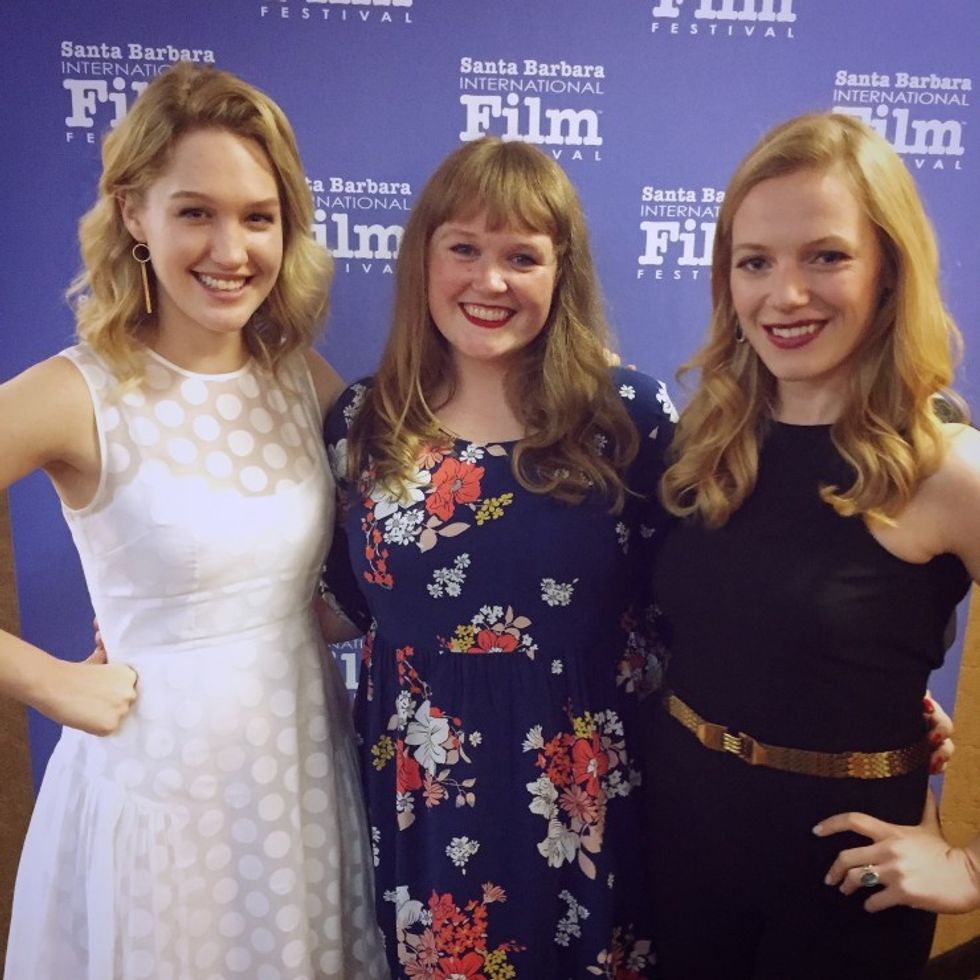
NFS: How do you choose the clients you work with?
K2: Generally, our clients are a combination of films we're passionate about, filmmakers we enjoy working with or who are referred to us, and distributors and sales agents that we have relationships with who refer us to filmmakers. We are always happy to chat with new filmmakers though to see if there is a good fit.
SF: I always watch a film before I represent it. So it comes down to if the message of the film resonates with me. Other factors that influence my decision include the quality of the film, cast, and storyline. And if I can envision opportunities and stories for the film within the media while I am watching it.
"Being mutually respectful is important when it comes to press and filmmakers."
NFS: Let’s talk press releases. When do you need one? During casting, when a film goes into production, when you land a major film festival? What should be included in a typical independent film press release?
K2: Again, the timing and content is always specific to the project and what the filmmakers are looking for from a press release - these are the situations that we help filmmakers sort out according to their needs.
SF: For the trades, they are interested in big announcements. So think major actors/names attached or distribution deals. If this is an indie film with an unknown cast, the trades aren’t going to be interested from the early stage.
We are preparing press releases, one-pagers, and press kits (EPK) for festival and theatrical release.
A one-pager is an overview and includes key information like distribution company, release date, director, producers, cast, run time, genre, rating, social media handles, and a synopsis.
A press release is tailored to a film but think ‘who, what, when, where, and why.' What is the hook/news angle? Why is this different from other films etc.
The press kit expands on the one-pager and includes bios for all key cast and crew, short & long synopsis, and credits.
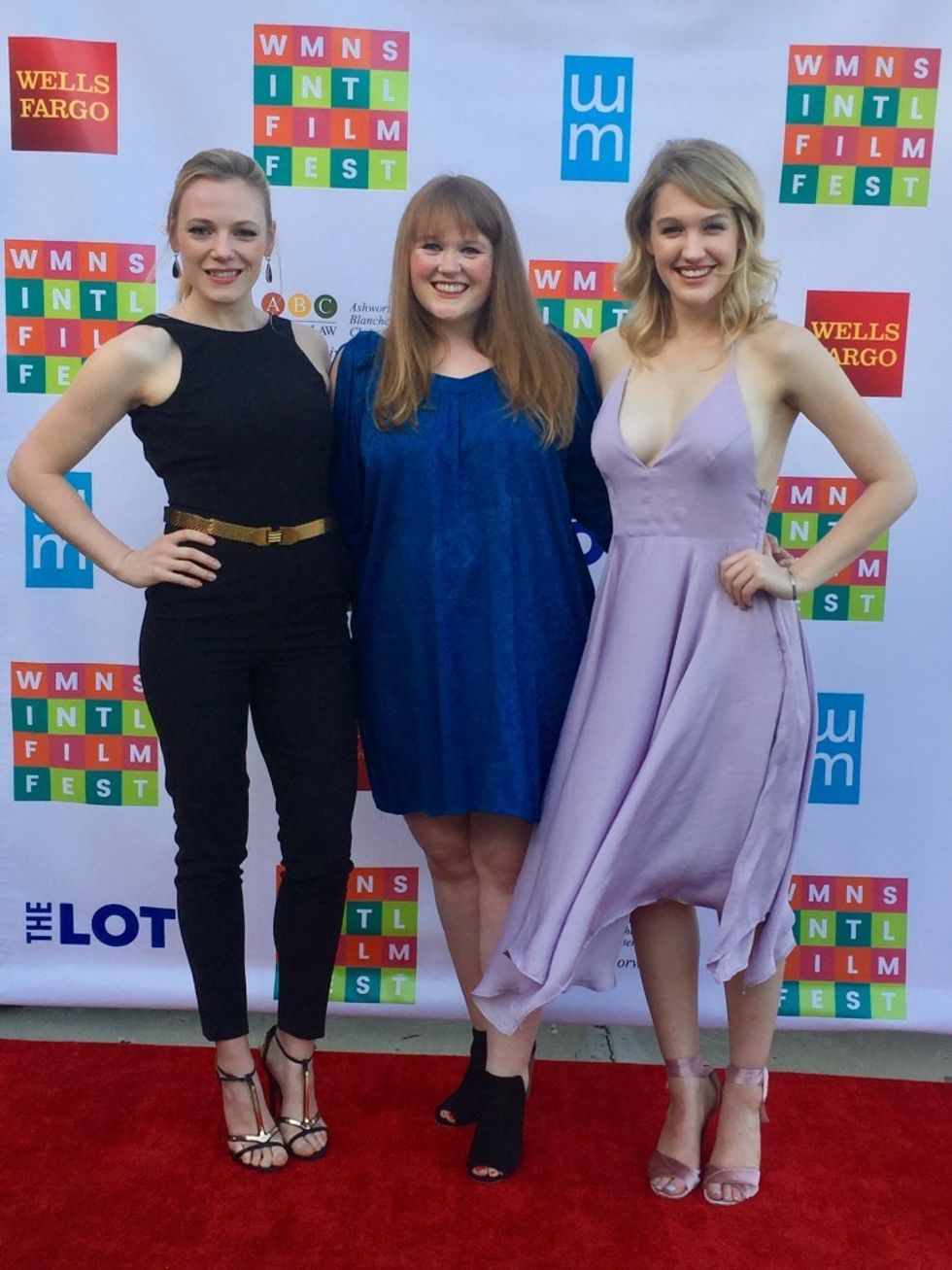
NFS: What makes a press release stand out?
K2: It depends on what the purpose of the release is, i.e. if it's a casting release for a project announcement or a general release about a film's release date for wide distribution, but generally for project/casting release, the placement of the release during a major market or festival, whether it be wide or exclusive, can help news stand out. The cast can also matter, and what the specific hook is.
SF: It needs to be written well and not drag out. I see a lot of press releases that are too long. The rule is generally no more than one page in an ideal world. I know sometimes it can go over into 1 1/2, 2 pages but try and limit it to one.
The hook/news angle is the most crucial element for your press release. Sometimes people accidentally bury the news halfway down or towards the end of a press release.
"My pet peeve is new filmmakers judging the media outlet interested in an interview. Some have the attitude "this outlet is too small and not good enough" to even bother doing an interview."
NFS: What are some of the biggest pitfalls you’ve seen filmmakers experience when dealing with the press?
K2: Being mutually respectful is important when it comes to press and filmmakers. Everyone is just doing their job and no one is personally out to get someone else, though of course, it can feel that way when a filmmaker has worked on a project so closely for years. Also being respectful of each others time is really key; we've been in situations where press or filmmakers cancel interviews at the last minute and can be very hard to explain to the other side.
SF: It is imperative to have great images of yourself that reflect your personal brand. Many filmmakers don't have quality high res images ready for media use. Then it becomes a race last minute to get them for a media deadline. Preparation is key!
My pet peeve is new filmmakers judging the media outlet interested in an interview. Some have the attitude "this outlet is too small and not good enough" to even bother doing an interview (once confirmed). I find this attitude frustrating when working with an indie filmmaker that is building their personal portfolio and reputation because it can be unrealistic to expect only top tier media to be interested in your first film. To secure top tier media coverage, it needs to be the right mix of elements. Also, the timing of your release affects if this is realistic because it could be a very busy time within the media. You're competing for space with the release of big blockbusters, international film festivals, etc. If you’re not Quentin Tarantino, Jordan Peele, etc. then you need to understand your publicity builds as your career grows. Therefore, sometimes, I see filmmakers say no to great opportunities because of this attitude. Big feature stories and covers will come over time as your career progresses.
Filmmakers need to get clear on their key messages and points so they feel confident when it comes time to do interviews. Also, knowing your talking points means you can keep your answers tight and not drag on…media don’t like it when people talk too much for the sake of talking. Concise points are best for quotes.
"...preparation is vital to have success and not miss an opportunity."
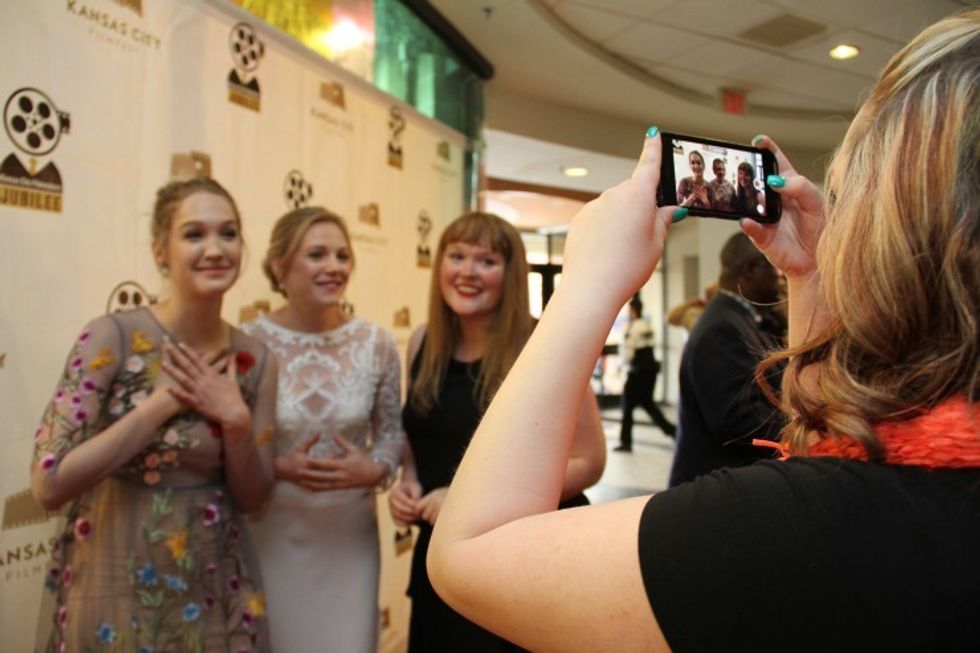
NFS: So, you have written an amazing press release and a few outlets are interested in covering your film. What happens now? What elements should filmmakers have ready in order to really succeed in publicizing their film?
K2: Generally we gather this information prior to any kind of release, but elements that are helpful for filmmakers to keep in mind, especially pre or during production, are:
- a full set of professional photos taken on set (a unit publicist can also help you determine which days would make the most sense to hire said photographer for)
- rough press notes or materials to make those notes (i.e. synopsis, logline, bios for talent, full credits, etc.)
- what types of packaged content you could create to help build awareness of your film or for future opportunities, whether it be behind-the-scenes footage, photos for posters, social media posts by cast, etc.
SF: As I have mentioned, preparation is vital to have success and not miss an opportunity. Therefore, I hope you already have great high res images on hand and know your key talking points. Other essential publicity materials that should be ready before publicity begins include artwork/poster finalized, trailer finalized, approved stills from the film, approved clips for media use (although you will generally work with your publicist to determine the best clips), etc.
I have worked on a few films where the key material hasn't been finalized, and it ultimately affects the publicity. It affects the publicity results by either: holding things up or missing media deadlines. Publicity timeline overview for pitching:
- An exclusive story for artwork/trailer
- Pitching for reviews/interviews
- Pitching clip exclusives
As you can see, we pitch artwork/trailer exclusive first, and this has to be pitched first. If your artwork/trailer isn't finalized, then it holds up when publicity begins, OR the decision is made to pass on the exclusive and move into pitching for reviews/interviews. This is a missed opportunity for the filmmaker because a publicist can usually secure an exclusive story for artwork/trailer. Once the exclusive is published, then the publicist can move onto pitching wider media and stories.
Generally, if media has shown interest, then they want to review your film (nothing for the filmmaker to do here except having a screener link available) or they want an interview with you. Interviews can be conducted via email, phone, or in-person. It is always a case-by-case basis as to how the interview is conducted, and generally, the journalist will let you know what they prefer.

Wrapping Up
With their wide range of experiences across different aspects of the entertainment industry, including independent film, we covered everything you need to dive into the mysterious world of film publicity.
The biggest surprise I discovered from our experts was how early you need to start thinking about publicity. You want to be ready on Day 1 gathering materials to use during your film's release: on-set photographs, stories, behind the scenes footage. These elements become a crucial part of a project’s publicity plan.
Whether you are launching a worldwide release of a feature film or preparing to show your short film for the first time at a film festival, this master advice can help you from press release to red carpet.
If you’d like to learn more about our interviewees, they can be found online at:
K2 Publicity: Kara MacLean and Kevin McLean
K2 Publicity is a Los Angeles based PR firm specializing in film and entertainment, both domestic and international. They are a modern PR agency, updating traditional methods with the ever-changing media landscape to offer innovative and cost-effective campaigns. K2 Publicity represents films and clients at all the major festivals and markets around the world, including TIFF, Sundance, Cannes, SXSW, Tribeca and Berlin, among others. They also handle press for some major film festivals you may have heard of, including the annual Inside Out Toronto LGBT Film Festival, and the experiential festival ‘Rom Com Fest.'
Sarah Findlay
Sarah Findlay has worked internationally as a publicist in Australia and Singapore. In the United States, her vast experiences range from covering a variety of independent feature films to documentaries at the various stages of a film (unit, festival, theatrical and VOD publicity). Festival publicity includes films world premiering in Los Angeles Film Festival, Brooklyn Film Festival, and the Denver Film Festival. She represents NFL & PGA athletes as their personal publicist. She also has extensive event publicity experience including award season, film premieres, and gala events.











